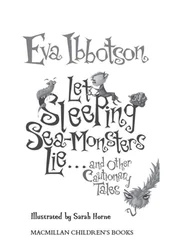THIS IS MARTHA KIVELSEN, SPEAKING FROM THE SURFACE OF IO ON BEHALF OF MYSELF, JULIET BURTON, DECEASED, AND JACOB HOLS, OF THE FIRST GALILEAN SATELLITES EXPLORATORY MISSION. WE HAVE MADE AN IMPORTANT DISCOVERY …
Every electrical device in the System would dance to its song.
Burton went first. Martha gave the sledge a shove and out it flew, into empty space. It dwindled, hit, kicked up a bit of a splash. Then, with a disappointing lack of pyrotechnics, the corpse slowly sank into the black glop.
It didn’t look very encouraging at all.
Still …
“Okay,” she said. “A deal’s a deal.” She dug in her toes and spread her arms. Took a deep breath. Maybe I am going to survive after all, she thought. It could be Burton was already halfway-merged into the oceanic mind of Io, and awaiting her to join in an alchemical marriage of personalities. Maybe I’m going to live forever. Who knows? Anything is possible.
Maybe.
There was a second and more likely possibility. All this could well be nothing more than a hallucination. Nothing but the sound of her brain short-circuiting and squirting bad chemicals in all directions. Madness. One last grandiose dream before dying. Martha had no way of judging.
Whatever the truth might be, though, there were no alternatives, and only one way to find out.
She jumped.
Briefly, she flew.
Three boy zombies in matching red jackets bussed our table, bringing water, lighting candles, brushing away the crumbs between courses. Their eyes were dark, attentive, lifeless; their hands and faces so white as to be faintly luminous in the hushed light. I thought it in bad taste, but “This is Manhattan,” Courtney said. “A certain studied offensiveness is fashionable here.”
The blond brought menus and waited for our order.
We both ordered pheasant. “An excellent choice,” the boy said in a clear, emotionless voice. He went away and came back a minute later with the freshly strangled birds, holding them up for our approval. He couldn’t have been more than eleven when he died and his skin was of that sort connoisseurs call “milk glass,” smooth, without blemish, and all but translucent. He must have cost a fortune.
As the boy was turning away, I impulsively touched his shoulder. He turned back. “What’s your name, son?” I asked.
“Timothy.” He might have been telling me the specialite de maison . The boy waited a breath to see if more was expected of him, then left.
Courtney gazed after him. “How lovely he would look,” she murmured, “nude. Standing in the moonlight by a cliff. Definitely a cliff. Perhaps the very one where he met his death.”
“He wouldn’t look very lovely if he’d fallen off a cliff.”
“Oh, don’t be unpleasant.”
The wine steward brought our bottle. “Chateau La Tour ’17.” I raised an eyebrow. The steward had the sort of old and complex face that Rembrandt would have enjoyed painting. He poured with pulseless ease and then dissolved into the gloom. “Good lord, Courtney, you seduced me on cheaper.”
She flushed, not happily. Courtney had a better career going than I. She outpowered me. We both knew who was smarter, better connected, more likely to end up in a corner office with the historically significant antique desk. The only edge I had was that I was a male in a seller’s market. It was enough.
“This is a business dinner, Donald,” she said, “nothing more.”
I favored her with an expression of polite disbelief I knew from experience she’d find infuriating. And, digging into my pheasant, murmured, “Of course.” We didn’t say much of consequence until dessert, when I finally asked, “So what’s Loeb-Soffner up to these days?”
“Structuring a corporate expansion. Jim’s putting together the financial side of the package, and I’m doing personnel. You’re being headhunted, Donald.” She favored me with that feral little flash of teeth she made when she saw something she wanted. Courtney wasn’t a beautiful woman, far from it. But there was that fierceness to her, that sense of something primal being held under tight and precarious control that made her hot as hot to me. “You’re talented, you’re thuggish, and you’re not too tightly nailed to your present position. Those are all qualities we’re looking for.”
She dumped her purse on the table, took out a single folded sheet of paper. “These are the terms I’m offering.” She placed it by my plate, attacked her torte with gusto.
I unfolded the paper. “This is a lateral transfer.”
“Unlimited opportunity for advancement,” she said with her mouth full, “if you’ve got the stuff.”
“Mmm.” I did a line-by-line of the benefits, all comparable to what I was getting now. My current salary to the dollar—Ms. Soffner was showing off. And the stock options. “This can’t be right. Not for a lateral.”
There was that grin again, like a glimpse of shark in murky waters. “I knew you’d like it. We’re going over the top with the options because we need your answer right away—tonight preferably. Tomorrow at the latest. No negotiations. We have to put the package together fast. There’s going to be a shitstorm of publicity when this comes out. We want to have everything nailed down, present the fundies and bleeding hearts with a fait accompli .”
“My God, Courtney, what kind of monster do you have hold of now?”
“The biggest one in the world. Bigger than Apple. Bigger than Home Virtual. Bigger than HlVac-IV,” she said with relish. “Have you ever heard of Koestler Biological?”
I put my fork down.
“Koestler? You’re peddling corpses now?”
“Please. Postanthropic biological resources.” She said it lightly, with just the right touch of irony. Still, I thought I detected a certain discomfort with the nature of her client’s product.
“There’s no money in it.” I waved a hand toward our attentive wait-staff. “These guys must be—what?—maybe two percent of the annual turnover? Zombies are luxury goods: servants, reactor cleanups, Hollywood stunt deaths, exotic services”—we both knew what I meant—“a few hundred a year, maybe, tops. There’s not the demand. The revulsion factor is too great.”
“There’s been a technological breakthrough.” Courtney leaned forward. “They can install the infrasystem and controllers and offer the product for the factory-floor cost of a new subcompact. That’s way below the economic threshold for blue-collar labor.
“Look at it from the viewpoint of a typical factory owner. He’s already downsized to the bone and labor costs are bleeding him dry. How can he compete in a dwindling consumer market? Now let’s imagine he buys into the program.” She took out her Mont Blanc and began scribbling figures on the tablecloth. “No benefits. No liability suits. No sick pay. No pilferage. We’re talking about cutting labor costs by at least two-thirds. Minimum! That’s irresistible, I don’t care how big your revulsion factor is. We project we can move five hundred thousand units in the first year.”
“Five hundred thousand,” I said. “That’s crazy. Where the hell are you going to get the raw material for—?”
“Africa.”
“Oh, God, Courtney.” I was struck wordless by the cynicism it took to even consider turning the sub-Saharan tragedy to a profit, by the sheer, raw evil of channeling hard currency to the pocket Hitlers who ran the camps. Courtney only smiled and gave that quick little flip of her head that meant she was accessing the time on an optic chip.
“I think you’re ready,” she said, “to talk with Koestler.”
At her gesture, the zombie boys erected projector lamps about us, fussed with the settings, turned them on. Interference patterns moired, clashed, meshed. Walls of darkness erected themselves about us. Courtney took out her flat and set it up on the table. Three taps of her nailed fingers and the round and hairless face of Marvin Koestler appeared on the screen. “Ah, Courtney!” he said in a pleased voice. “You’re in—New York, yes? The San Moritz. With Donald.” The slightest pause with each accessed bit of information. “Did you have the antelope medallions?” When we shook our heads, he kissed his fingertips. “Magnificent! They’re ever so lightly braised and then smothered in buffalo mozzarella. Nobody makes them better. I had the same dish in Florence the other day, and there was simply no comparison.”
Читать дальше
![Майкл Суэнвик Tales of Old Earth [A collection of short-stories] обложка книги](/books/388351/majkl-suenvik-tales-of-old-earth-a-collection-of-short-stories-cover.webp)










